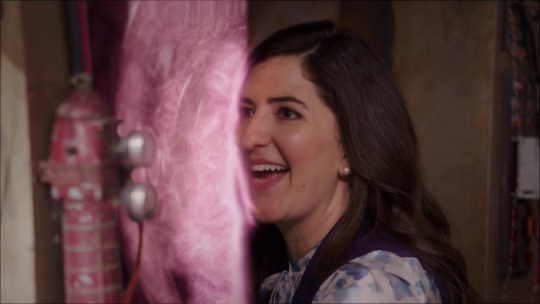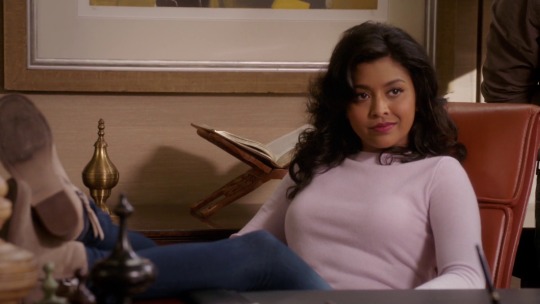#i have an equal amount of gripes/criticisms but to stay positive i think what i liked most was having chitose be such a major character
Explore tagged Tumblr posts
Note
Have you played Infinite Wealth yet?🐉 Your Zhao art got me interested in playing YLAD even though I had never played a yakuza game before and I got Obsessed (I think I've sent an anon about this before lol)
I've been playing infinite wealth and adoring it so far 😍😭 just wondering if you have played/ have any thoughts on it? It's a long ass game so I totally understand if you haven't had the time
Thank you for the lovely art, your linework and coloring are so distinctive 🙏🙏🙏
Aww this is sweet!! Yes i totally did play IW!! I did the same as I did when y7 came out and marathoned it right after the release so I finished it a few days after it came out 👍👍 I really liked it, but I think it wasn't quite as good as 7, in terms of story (they really improved upon the combat systems and streamlining some of the extraneous crafting systems). The story was a little (extremely) wack imo?!? but overall pretty fun and enjoyable i think. i loved eric and chitose and yamai a lot they were very awesome i've been meaning to draw them but I've been having trouble finding time/motivation to draw lately 😭
this is def giving me motivation to do it though so maybe ill try to find time ... 🤨
#OHHH and of Course i fucking loved having seonghui as a party member IM IN LOVE WITH HER!!!!#well i have a lot a lot of thoughts about it as a whole LOL the story and everything ....#i have an equal amount of gripes/criticisms but to stay positive i think what i liked most was having chitose be such a major character#bc even in 7 i felt saeko didnt have a Huge part in the story so having a woman as like more front and center was nice 👍#tysm btw let me know ur favs from it and i'll try to draw them when i do some IW doodles... beloved anon#ask
1 note
·
View note
Text
The Good Place full series review

How many episodes pass the Bechdel test?
96% (forty-eight of fifty).
What is the average percentage of female characters with names and lines for the full series?
49%
How many episodes have a cast that is at least 40% female?
Forty-four.
How many episodes have a cast that is at least 50% female?
Twenty-eight.
How many episodes have a cast that is less than 20% female?
Zero.
Positive Content Status:
Good - you might even say, strong - in the sense that it’s all there, pretty much all of the big representation bells are ringing, particularly the ones for women and racial diversity. That said, the show is generally content to sit pretty and not push the envelope on inclusivity, so if you’re looking for inspiration in-text instead of just in casting, you might be disappointed. At any rate, it’s a solid feel-good time, and not likely to make you mad (average rating of 3.01).
Which season had the best representation statistics overall?
The numbers stay pretty consistent across the whole series, but if I had to call a winner, it’s season four, which has the highest percentage of female characters and the only above-average positive content rating (though that was awarded somewhat cumulatively, and so doesn’t feel particularly well-earned by that season above the others).
Which season had the worst representation statistics overall?
It’s such a close call, but season three must be the loser here by virtue of the lowest ratio of female to male characters; it also had one of the series’ two Bechdel fails. Like I said, it’s...a really close call.
Overall Series Quality:
There’s so much about it that is fresh and original and interesting, I wish I could love it more. After a magnificent debut season, the show suffers immensely for a lack of pacing and the absence of coherently-planned plot, and at times the stagnating characterisation and pointless filler caked into the cracks in the storytelling can be frustrating and/or tedious. I’m only as disappointed as I am because the potential for greatness was so strong. That said, even at it’s worst The Good Place is still entertaining, and most of it is better than that. It’s irreverent, it’s fun, it’s surprising, and sometimes it’s even as poignant as it is remarkable. I have my gripes, in droves, but that doesn’t mean this show is not worthy.
MORE INFO (and potential spoilers) under the cut:

Imagine. Imagine a version of this show where the first season is basically the same, and the second season is...somewhat similar to how it is, but with more focus and direction, less time-wasting; a second season where figuring out that some fundamental change to their circumstances is necessary comes early, and instead of faffing about with ethical lessons in the fake neighbourhood again while Michael pretends he can get everyone to the Good Place, we get down to business with going on the run and into the Bad Place to find the judge and petition for help. Imagine this show, but the third season has none of that return to Earth crap, and instead, is the neighbourhood experiment from season four, properly fleshed out. And then season four is all about going to the Good Place and solving the problems there, addressing issues with the concept of utopia and the ineffectual bureaucracy of obsessive niceness (used for comedic effect in the actual show, but c’mon, there’s a whole untapped reservoir about morality there). Each season could have (gasp!) a properly-planned and plotted arc, dealing with a different school of ethical considerations, and I dunno, maybe the characterisation could have trajectory too, and the characters could vitally shape the storytelling, and maybe not get their personalities and experiences erased and rebooted over and over again, nullifying large swathes of the narrative which came before? Ideally, they could be reset zero (0) times, or at least have all their reboot experiences dumped back into them in the first few episodes of season two, so that they could proceed from there as whole people. Rebooting everyone’s personalities is not actually necessary to the plot in any way, and is, actually, incredibly detrimental to storytelling and especially, character development. Imagine this show, but just chilling out and actually telling a coherent story?

I am all the more annoyed by how things turned out on this show because I know that the four seasons were planned for, rather than being the result of cancellation; the idea that the creators sat down and ‘plotted’ (using that term loosely) to make this mess drives me a little wild. The (attempted) avoidance of the dreaded ‘stagnation’ seems obvious, and it leads to major narrative shortcuts and jumps and instances where the show spends an episode or two on what should have been a half-season’s development, minimum, and yet at other times all momentum grinds to a halt for a bizarre bottle-type episode where the characters just talk about a concept for a while or work on some unimportant romantic subplot. The various ethical concepts that the show heavily incorporated as its bread and butter in the first season start to stick out like sore thumbs in season two, seemingly wedged into one episode or another for no real reason other than just to be there, and the fact that the show lets go of the idea of moral choices in the life mattering at all in the end leaves the backbone of the show in a very strange shape. I said in the season four review that I didn’t expect the show to come up with some One True Answer about how people should live their lives, but that I was baffled by the fact that the show side-stepped that altogether; what I expected them to conclude was something in the line of ‘we recognise that life is complicated, not all situations are created equal, and it can be hard to know how to proceed ethically or even to access ethical options within one’s circumstances. Still, it is important to do your best, not only for yourself but for your community, because the more good you put into the world, the more there will be to go around and come back to you. What matters most is that you are doing your best with what you’ve got’. The fact that the show distracted itself with fixing how the afterlife rewards people within the afterlife means that it suggests no incentive to perform moral actions in life, and frankly...who gives a fuck? The real world is the place we’re all living in, and there’s no point starting a conversation about morality in real life if the conclusion is just ‘guess we’ll straighten out all the fascists and bigots and the other pieces of shit after they die, so don’t worry, everyone gets to Heaven eventually!’

Anyway, if that seems like just a reiteration of what I said in the season four review, well. I’m still baffled by it. The other thing I was going to talk about in the season four review but held for the full series instead was that one big thing that I have railed about all the time since season one, and that’s PACING. For all ye wannabe-writers out there, please understand how important pacing is. Even vital plot or character beats can seem like meaningless filler in a poorly-paced story, because your audience’s mind is hardwired to try and follow narrative cues that are being incomprehensibly muddled. Standard structure can be played with, but if you toss it out in favour of ‘stuff just happens, ok? Except when it doesn’t’, you just end up with a soup of disconnected story ideas, and nothing threading it together. Character interactions and especially developments can help to create the through-line you need to keep the story functioning despite itself, but as variously noted with The Good Place...initial characterisation? Strong, excellent. Development? Not so much, not least because they kept getting deleted and rebooted. Also, time skips kept happening, and that’s a great way to fuck over your narrative coherence even more: remove the recognisable constant we call time! It’ll be fine! As with all things, it is perfectly possible to play around with this stuff, but you have to know what you’re doing and be doing it for a good reason, and that’s not what they had going on here. This was narrative soup, and when you have a soup, the pieces all kinda meld together and lose any individual purpose, meaning, or power they may have had. The result in this case was not bad, but it really could have been so much better, and literally all it needed for that was some attention being paid to the story structure via pacing.

So. The good news is, I think I have pretty well exhausted all of my complaints by now, and that leaves us with the good stuff, of which there was no paltry amount. The show was not a hit by accident (even if I do feel that it’s success had a lot to do with people sticking around after the spectacular first season, and not because it stayed strong throughout), and even if there was a lot of soup going on, what comprised that soup was all really fun and unique, and this made for a wonderful piece of light-hearted television that could be as hilarious as it was insightful. It still had a lot of great takes on things, the commentary was strong (even if it pulled all its punches towards the end), and whether the storytelling was ebbing or flowing, it was always delightful. The show also managed to pull a miraculous finale out of its hat, and that’s a rare thing in television; however the story wobbled over the course, the ending provided enough satisfaction to forgive just about any sins, especially if you don’t happen to have been watching with a deliberately critical eye. Do I wish that Eleanor got to hook up with a chick on-screen some time instead of just making a lot of bi remarks? Yes. Do I consider the show to have queerbaited instead of providing genuine rep? No. Is the underselling of the queer content my most significant representation complaint? Yes, it is, and that's good news considering the world we live in and the dearth of quality representation that the industry has brought us to expect.

There's an important distinction to be made there, regarding the tokenistic representation that is very common these days in tv trying for brownie points and good publicity, exactly that kind of 'political' inclusivity that conservatives are always bitching about. It should not be surprising that I support that tokenism over the alternative of having no representation at all, but it can still be quite disheartening to feel like your identity or the identities that you value are being referenced as nothing more than an opportunity for some shitty producer to perform wokeness for attention, praise, and the almighty dollar. I bring this up because - even though The Good Place never really worked up much of a boost to its content rating - one thing I felt that it did really, really right was providing representation without it feeling tokenistic at all. Eleanor's bisexuality wasn't as prominent as I might have preferred, and as noted through the course of the show, there were times I feared it was more bait than real rep, but reflecting on it at the end, the way it was included feels organic, it never gets in the way in order to ensure the audience notices and is dutifully impressed. The number of women around and the multicoloured casting plays out even better; I never once felt cynical about the gender balance I was seeing, and I've said it before but I'll say it again: the fact that the show was packed with names from across the world gives me so much life. I'm still a little salty about Chidi's Senegalese origins getting the shaft (and we won't talk about 'Australia'), but the nonchalant diversity of naming goes such a long way to embracing the idea that this is a world for everyone (and an afterlife for everyone, too). And where anything else might fall apart or lose its way, that is an affirming thing. If you want feel-good tv, it’s here. This is the Good Place.

9 notes
·
View notes
Text
Post-Moonless predictions— The Mole (4/10)
previous part<--[here] --> next part
for the last week or so, i’ve been talking about a large theory i’ve been writing. since finishing it, i’ve decided to publish it in parts, since it’s actually about 10 different theories all on one subject. since it’s all written out, i’ll try to be publishing one part of this per day.
essentially, this is a set of theories about what i believe will have to happen in order to properly lead up to a climax--the one we’ve been building up to for years and years now. so, these are what i theorize will happen after the first moonless vs beloved battle, broken up into ten different parts. each theory is explained and theres images for each one.
table of contents (bolded is the post you’re looking at):
moonless and beloved will rematch (1)
soubi will fall into a deep depression and possibly become suicidal (2)
ritsuka will arrive at seven voices, SM’s activity will be revealed (3)
SM will reveal that there was a mole in their organization (4)
kio will be the one to take ritsuka to goura (5)
ritsuka will find things out about soubi and the aoyagi family (6)
SM’s true purpose will be revealed. ritsuka will have to make a decision about good vs evil (7)
seventh SM member will be revealed (8)
nagisa will find out what really happened to sanae (9)
ritsuka will be asked to join SM to fill the aoyagi seat (10)
Theory: after arriving at goura, SM will reveal to ritsuka that they have/had a mole in their group. this will be bad because the organization is already dysfunctional and suspicions could cause the entire thing to fall apart and probably has already had a huge effect.
one of my biggest current gripes about loveless is the fact that we spent 8 volumes building up to who septimal moon is and why they’re out for seimei, but right after we actually got to meet them and everything in their organization went to shit, they were almost completely dropped in-plot. mikado was introduced and expanded upon, but mostly as moonless and seimei’s rival and not as a member of septimal moon. the latter seems to be a secondary part of her characterization. the things that happened at seven voices, we never got follow-up on.
and fuck, a lot of things happened at seven voices. part of the school was destroyed. one of the key members of SM was badly injured and had his eyes torn out of his head. another member, who’s apparently paralyzed, disappeared out of her wheelchair. seven and nagisa both had near breakdowns–seven’s being over her security system being so easily infiltrated and nagisa’s being over ritsu’s injury and natsuo and youji. a huge amount of data was stolen from the organization. students and faculty were injured and some were in critical condition. the safety of many students and of the organization as a whole were put in jeopardy and SM was forcibly given the confirmation that the kid who betrayed them is still alive and 100% out for blood.

(i’d be pretty mad too if my systems were compromised as badly as seven’s were. 30% is an actual fuckton of data.)
however, we have absolutely no follow-up on any of this. what did they do about security? what about the data stolen? did they rebuild the school? how has ritsu’s recovery been and what’s he like now that he’s physically disabled? how did nagisa actually feel about natsuo and youji choosing soubi as a parent over her? what the hell are they doing about chouma? what did they tell the students and kids who all witnessed a high-level break in and some of which were badly injured? who were the other people who were apprehended? what did SM do about bloodless, who they knew were the ones to steal the data? what do they know about mikado’s current actions against beloved, or is mikado primarily acting out of primary interest?

(you can’t tell me that something like this doesn’t cause some sort of pr disaster.)
if yun does not show us anything that has happened with SM and at seven voices in the last few months, i will be more disappointed in her than i have ever been (which is saying a lot), because we spent 8 volumes building up to the incident at seven voices and not following up on any of the things that happened there is extremely bad writing. so im going with the theory that since much of the story is told through ritsuka learning about the world, that when he goes back to goura, he’s going to find out what has happened over the past few months and we’re going to get more flashback chapters revolving around it.
one of the biggest things, though, is that there is/was a mole in SM, and it’s someone who has been working with seimei. it’s not mikado, it’s not nagisa, or ritsu, or seven. it’s the person who disappeared on the night of the incident, who disappeared against all odds and despite the fact that there was no way she should have been able to and then was shown to be at the place where bloodless was stationed. in other words, chouma was undoubtedly a mole.

(don’t worry guys, she just Got Better.)
there had to have been a mole. there is no other possible way that seimei, nisei, and bloodless, couldve so easily surpassed security at the school. seven had recently designed the new system and even though bloodless and nisei are both said to be quite good at getting through systems, seven does this for a living and they got through the security system like it was nothing, like they already knew what to do and then they knew exactly where the information they needed was located and how to create a distraction to get to it.

(mikado actually seems to be alluding to chouma being the mole here.)
it’s pretty obvious, knowing these things, that there was someone feeding them information from the inside, and the only person that could be suspiciously disappeared after the incident at seven voices and created chaos with kaidou kio and was shown walking around, despite having said to be paralyzed.
(technically, i guess you could make the argument that kunugi couldve been the mole, but we know nothing about them, whereas the small information we’ve gotten about chouma pretty obviously implicates her as the mole, especially since she’s clearly not a prisoner at the place kio was being held.)
if nothing else, i expect septimal moon to have realized by now that there was a mole in their organization, and i expect them to be trying to figure out who it is/was. im unsure if they have figured it out yet, but this would be a good way to create chaos within the organization. so far, from what we’ve seen, septimal moon in its current iteration is incredibly unstable. i say this because of what we’ve seen of it–we have members who hate each other, members with histories with each other, members who are incredibly narcissistic and members who see everything as a competition.
let’s break down what we’ve seen of SM so far. we have ritsu, who is so incredibly wrapped up in his history with soubi and akio that he’s completely obsessed. hes been shown to disrespect authority, prefer working alone rather than in a team, looks down on others around him, seems to enjoy delegating tasks, is obsessed with control, and is all around incredibly narcissistic. like, ritsu completely fits the bill for narcissism. and narcs don’t tend to work in teams of equals very well. in SM’s current iteration, ritsu seems to want to take control and ‘lead’ the council, despite everyone on the council being at the same authority level. on top of all this, ritsu has history with nagisa and potentially had a very large hand in what caused nagisa grief for the rest of her life (more on that in part 9). ritsu and nagisa have a rivalry that seems to take up most of their screentime, and ritsu seems like he’s constantly trying to get the upper hand and swing into a greater position of power, rather than being concerned with the well-being of the council.

(i mean, come on. he was like this at 15 and just seemed to get worse.)
then we have nagisa. im going to eventually do a write-up on nagisa’s character, since there’s a lot that needs to be said about her, but the short version is that sanae’s death so incredibly affected her life that nagisa is still stuck in a state of grief 21+ years later. nagisa’s life still revolves around sanae. she’s constantly trying to fill the void that sanae left, even going as far as creating an experiment in her image and then using ritsu to replace her once he was injured enough that he needed her. going along with this, she has a horrible relationship with ritsu (more on this in part 9), and it’s incredibly unhealthy. she’s not in love with ritsu. she even admits that she’s using him to fill the emptiness that her sister left. ritsu is the only thing left of sanae that nagisa has, so she holds onto him even if she hates him because of the fact that he was partially (as far as she knows) a cause of her death. this has resulted in her being obsessed with ritsu, but in a negative way, and she has created a ‘game’ where she constantly tries to destroy him and all that he has left (soubi). this is what her entire life is. it all revolves around sanae and by extension, ritsu. her personal relationships and goal to try to beat ritsu completely cloud her judgement, and she has not been shown to work in a team at all.
seven, on the other hand, isn’t involved (or too involved) with personal conflicts and personal relationships. but, the problem is that she doesn’t have personal relationships, with the exception of nagisa. she’s reclusive and a loner, and doesn’t appear to work in a team yet. she is said to mostly stay in her room and not talk to people, and values the virtual world over the real world. this doesn’t make her the best candidate for a good team-member, especially when she’s outright described as a shut-in with only one friend.
chouma is a mole. i think it goes without saying that that’s not... really a good quality to have on a team.
seimei is a traitor, a murder, and a rapist. he is also not a good team player. and that’s why he has a literal death warrant out for him.
mikado is interesting because due to her personality, i actually think she’d actually be the only one out of these six with the council’s survival at heart, since she’s a very objective person and seems to properly keep her personal life separate from her professional life. however, this seems to have crossed recently, because she has a professional job with the same objective as her personal goal--taking down seimei and nisei and making them pay for what they did to her. it’s also currently up in the air whether or not SM knows that she actually battled with seimei and if they know about her contacting ritsuka. while i also think both these actions were good for the council, i dont know if the rest of the members would take well to knowing that she acted without telling them. this could easily cause dysfunction. regardless, though, i actually think mikado would probably be the best team player out of these six for the simple reason that she views her position as professional and tries to keep it separate from her personal life. but i dont think she alone has enough glue to hold everything together.
so we have 5 people who can’t work well together and 1 who may be acting without the council’s knowledge. on top of that, 2 of those 6 are traitors and have betrayed the organization. we do have 1 member who we know nothing about other than a name, but more on them in part 8. regardless, we have a team of people who... aren’t really a team. theyre more of a collection of people who should be working as a team but are more working as individuals. they are incredibly dysfunctional. theyre dysfunctional enough that seimei was essentially hiding in plain sight at an old lady’s house with contact to the outside world and SM couldn’t find them until a 14 year-old member started working by herself and successfully tracked him down without the help of the other members. in short, they’re pretty terrible at what they do (more on what they do in part 7).
above all else, the current iteration of SM does not work together as an organization. whatever they’re trying to do, they’re not doing it together. every member seems too wrapped up in their personal goals and problems to be able to work with others. ritsu is constantly focused on soubi and his narcissism affects him being able to work with others. nagisa is focused on beating out ritsu and is still in pain over her sister’s death. chouma is a mole and working with seimei and no one knew. mikado seems to be acting outside of SM as she goes after seimei. seven seems to be incredibly solitary. seimei betrayed the organization and his seat is open. right now, SM is not an organization, but a group of individuals who are all chasing personal goals rather than working together as a team. in short, SM is falling apart very quickly, and given the make-up of members and the opposing personalities, i highly doubt that they’ll be able to pull together to act as an organization.
because of this, the realization that there’s a mole in the organization could very easily tear them apart with accusations of each other and the dysfunction of the group as a whole. since the group is unstable, knowledge that there’s a mole can very easily cause untrustworthyness of other members and members could begin to get horribly suspicious of each other and start making accusations fly, especially when we have members with previous connections to seimei and members who only work alone. it creates an incredibly toxic environment that could easily be the downfall of the current iteration of SM. without knowing who the mole is, the dominant members of the group could cause the entire organization to completely fall apart.

(thats also the face i make when im about to fuck everything up with one piece of dialogue. i like her. she absolutely knows what she’s doing.)
#loveless#minami ritsu#sagan nagisa#saotome seven#gomon mikado#chouma kio#aoyagi seimei#aoyagi ritsuka#theory#post moonless battle series#my content
5 notes
·
View notes
Text
Inside “Fin”, the elite human/AI assistant
New Post has been published on https://takenews.net/inside-fin-the-elite-human-ai-assistant/
Inside “Fin”, the elite human/AI assistant
“I’ve FOMO for the long run”, says Sam Lessin. That’s why his startup Fin is working backwards from a far-off tech utopia. At some point, computer systems with some human assistance will reply our each beck and name. In the present day, Lessin is teaming them up. On daily basis, Fin will get smarter.
For $1 a minute, 24/7, Fin will get your digital chores performed. Message, electronic mail, or communicate a request and an actual particular person will snap into motion, augmented by a machine intelligence toolkit constructed from all of the duties Fin’s tackled thus far. Positive, it handles analysis, scheduling, commerce, and buyer assist calls. Nevertheless it additionally learns your habits, negotiates for you, and conquers advanced jobs like creating a web site.
Now after two years and funding from prime buyers together with Kleiner Perkins, Fin is opening as much as extra prospects and press. “We’ve actually deliberately talked to nobody” says Lessin, a former Fb VP who bought it his file sharing startup Drop.io.
That’s a vastly totally different strategy than a lot of the boisterous AI startups have taken. Lessin tells me “There’s been this loopy hype cycle. ‘All the pieces’s a bot. Bots are superior. All the pieces’s an assistant’” Lessin laughs. “All these items fucking suck.”
Fin was decided to not suck, even when that meant staying quiet. Lessin and co-founder Andrew Kortina have tinkered and examined Fin since mid-2015. “I had performed Venmo” Kortina says, downplaying his co-founder function and its sale to PayPal, “and was then doing nothing. I heard Sam was additionally doing nothing and that piqued my curiosity as he’s an previous good friend.”
Brainstorming led them to the thesis that “the web is damaged as an info machine” Kortina tells me. They noticed a larger future than leisure, distraction, and massive enterprise. So in Fin’s first incarnation, the duo swapped uncared for memos and to-do lists, and tried to seek out what they may get performed for one another. A lot had been falling via the cracks.
“I’m okay about doing menial issues for colleagues however I’ll simply let all that stuff in my very own life slip” Kortina admits. “I wouldn’t go to the dentist for years. I didn’t have medical health insurance after school for 10 years. My credit score rating was horrible as a result of I had some invoice I wouldn’t determine easy methods to pay.”
Most individuals have equally boring duties they detest spending time coping with. You would name the cable firm to battle a value hike or analysis eating places and hunt for a reservation. So may Fin. And because of Uber we’ve grown accustomed to with the ability to commerce cash for that point again, sidestepping sluggish public transportation or searching for parking once we’re in a rush.
Fin co-founders Sam Lessin (left) and Andrew Kortina (proper) in entrance of the flag of Finland
Whereas it’s straightforward to think about Fin as merely a first-world luxurious for the lazy, and it’s nice at that, it’s additionally a productiveness software that may let folks obtain extra of what solely they will do. Kortina talks about Fin as a approach to “immediately offload” chores.
Even in case you may energy via a process sooner than Fin may second-hand and hold the , “It’s not simply the price of doing that factor your self. It’s the context switching” Kortina explains. “It’s so laborious for me to get into a extremely good state of focus and circulate and creativity, and after I get into that state I don’t need to be interrupted.”
Fin’s removed from the one private assistant startup making an attempt to avoid wasting you time, however most of the others fail on account of hubris, relying to closely on their very own code as the reply to each query. “The error is taking a look at machine studying and considering we’re so near this normal intelligence” Lessin insists. Changing people outright isn’t the reply. “The long run is folks serving to folks”.
Rivals that may go AI-only are restricted to slender units of duties, like x.ai for assembly scheduling. Conventional and digital assistant providers could be inefficient. Fb’s M assistant, additionally makes use of a combo of people and AI however is free and hasn’t been opened as much as the general public.
One service just like Fin referred to as GoButler was pressured to pivot to solely automated help, and finally bought as scrap to Amazon. Fin’s most remaining direct competitor is Magic. It’s cheaper at $zero.59 per minute however solely takes request by way of textual content message. Lessin moonlights as a companion for Gradual Ventures, which participated in Magic’s $12 million 2015 Collection A, which raises some issues about conflicts of curiosity he wouldn’t touch upon. [Update: More examples of competitors were added to this paragraph.]
However wait, isn’t AI imagined to take everybody’s jobs? Lessin envisions a brand new industrial revolution as a substitute. He cites cobblers making a number of sneakers whereas ready across the store for patrons, struggling to match fluctuating demand. However with steam and electrical energy “you had a brand new supply of energy. It’s not like energy stopped work. You had people doing what they had been good at, tech doing what tech was good at, and also you had far more sneakers.” If the brand new jobs offset these obviated stays to be seen.
With Fin, although, Lessin’s imaginative and prescient entails a crew of round the clock operators outfitted with AI and processes for comparable duties can snap into motion even after-hours, reasonably than a full-time devoted assistant being “paid for exhibiting up being on YouTube” after which going off the job, Lessin says. Even when it’s costly at $1 per efficient minute of labor, Fin is exceedingly handy, and also you don’t pay for down time.
To make use of Fin, you simply pop open its minimalist black-and-white desktop website or iOS app, then kind, communicate, or add a photograph of your request. For those who’re uncertain what you could possibly ask for, there’s an anonymized feed of actual examples from different customers to spark your creativeness. “We will execute any process that doesn’t require palms in your metropolis” says Lessin, noting how laborious it’s for some startups to get native scale and capability nailed down. “I’ve unimaginable respect for Instacart.” He additionally factors out that “there are varieties of specialised data we will’t presently do for you. Ask us some PhD physics downside and it’ll both take a very long time or we gained’t do it.”
Often, although, you get messaged again virtually instantly by a Fin human who collects any essential particulars and will get began. I felt an instantaneous sense of reduction upon outsourcing my duties. Alongside the best way, your process will get up to date with progress and requests for secondary selections. When attainable, it simply pulls issues like addresses and airplane seat preferences out of your onboarding survey, and cost info or on-line passwords from the app’s Vault. You get an in depth assertion of precisely how Fin used your time and the way a lot you owe.
“Our job is to combine the perfect software or particular person for the job in a approach to ship an expertise that’s higher than you will get from working with a single remoted particular person, or a chunk of pure software program” Kortina declares.
That’s the place the identify ‘Fin’ is available in. “Like ‘the top’ in French movies” Lessin reveals. “That is the interface and the methods issues will work in 50 or 100 years.” Whereas expertise will get increasingly more adept at a wider vary of duties, he imagines that ultimately, it should nonetheless be people sending requests to computer-human groups.
The toughest a part of utilizing Fin is getting over the psychological hurdle of relinquishing management whereas paying for what you could possibly do your self. “I suppose that’s the true competitor” says Lessin. Even factoring in what your time’s value and the context switching overhead, Fin can produce some critical sticker shock. That’s accentuated by our idealized predictions that underestimate the time required to do issues. “How lengthy does it take to e-book film tickets?” Lessin jokes. “30 seconds? No!”
Fin’s crew
I used to be charged $80 to cope with having a mis-shipped iPhone X refunded and a brand new one purchased and despatched. Whereas I used to be grateful to not must cope with buyer assist, it was some dear peace of thoughts. Getting a vacation restaurant reservation initially price me $150, which is totally absurd even when took a number of loops to seek out the precise time and get me to signal a bank card cost kind for the prix fixe dinner.
Fortunately, I used to be refunded that $150 after submitting a criticism via the app, which is simple to do via Fin’s thumbs up/down buttons on every request. “Most actually heavy customers escalate / ask about one thing each month or two” Lessin admits. Fin makes use of inside benchmarking instruments to trace if sure assistants take too lengthy on a process or routinely do an excessive amount of analysis in a class. Nonetheless, Fin typically goes overboard so customers shouldn’t be shy about contesting any fees that appear ridiculous. You may sign-up via this hyperlink for TechCrunch readers to get a reduction in your first duties.
Fin initially launched in beta with an $120 monthly subscription price. However Kortina gripes that “all we had been studying is how folks may arbitrage Fin to do far more than $120 value of service”. He appears to be having unhealthy acid flashbacks to earlier than Venmo began charging a three% bank card price in 2012, when folks would simply ship cash forwards and backwards to hit minimal spending restrict or earn factors whereas Venmo ate the charges.
With the change to per minute pricing, “We’ve set ourselves up for the lengthy haul by actually specializing in unit economics” says Lessin, in distinction to many on-demand startups. That absolutely delights Fin’s buyers John Doerr at KPCB, Sameer Gandhi at Accel, and Saar Gur at CRV. Whereas Lessin gained’t reveal precisely how a lot Fin has raised, he calls them “good capital companions”, noting the startup has sufficient money to “have the ability to do that for a very long time.” Fin now has 20 workers on the technical aspect, whereas it’s climbing in the direction of 100 whenever you embody its full-time operators.
Not subsidizing the service is a wholesome alternative for Fin, however meaning “Sadly it’s not at a value level that everybody on Earth can afford.” Whether or not via economies of scale, AI development, or human coaching, Fin could have to deliver the worth down if it desires widespread adoption. “The long run is already right here” sci-fi creator William Gibson as soon as mentioned, “it’s simply not very evenly distributed.”
The premium price ticket begets premium service that make Siri and her cohorts really feel like mere calculators compared. “The message is you need to demand much more out of assistant providers than cooking timers and Google search lookups” Lessin concludes. In an period when expertise is designed to absorb the utmost quantity of your time, Fin allows you to purchase it again. We’ll every must resolve how a lot it’s value.
0 notes